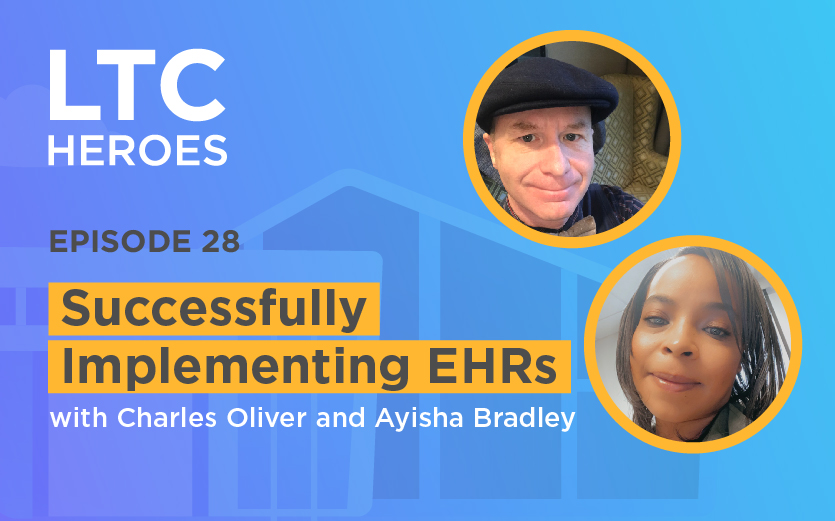The Benefits of Implementing EHRs
In the episode of the LTC Heroes podcast, Charles Oliver, Director of Customer Success at Experience Care, and Ayisha Bradley, QA Informatics Technician at Care Centers Centers Management, sit down with us to discuss the benefits of electronic health records and how to implement them properly. Both Oliver and Bradley have extensive experience in nursing, making their discussion about life before paperless operations exceedingly interesting. They explain that, after the initial learning period, the move to EHRs has made daily workflows far more efficient.
EHRs also:
- Organize and track care plans
- Reduce medical errors
- Reduce medication errors
- Cut operational costs
- Give residents more control over their medical records and privacy
For more about the benefits of EHRs, click here.
Of course, there are certain features that your EHR must have for it to improve the quality of care at your facility.
Make sure your EHR has:
- A minimum data set (MDS)
- Clinical eMAR and eTAR
- Cloud-based hosting
- Point of care charting (POC)
- Admit discharge transfer (ADT)
- Resident scheduling
- Billing/revenue cycle management
- Sufficient resources for training and implementation
You can read about the must-have and optional features of EHRs here.
The Challenges of Implementing EHRs
Ayisha and Charles agree that one of the biggest challenges of implementing an EHR is getting the nursing staff on board. It is difficult to simply get nurses off of the floor long enough to learn how to operate a new system. The next step is to properly educate them about the functions and benefits of EHRs so that they understand the positive impact they can have by using EHRs successfully. Maximizing the potential of EHRs requires the input of all users, not just management, Charles noted. Proceeding before consulting the staff can actually create more work for LTC facilities.
Learn more and sign up to be notified about future episodes at LTCHeroes.com

